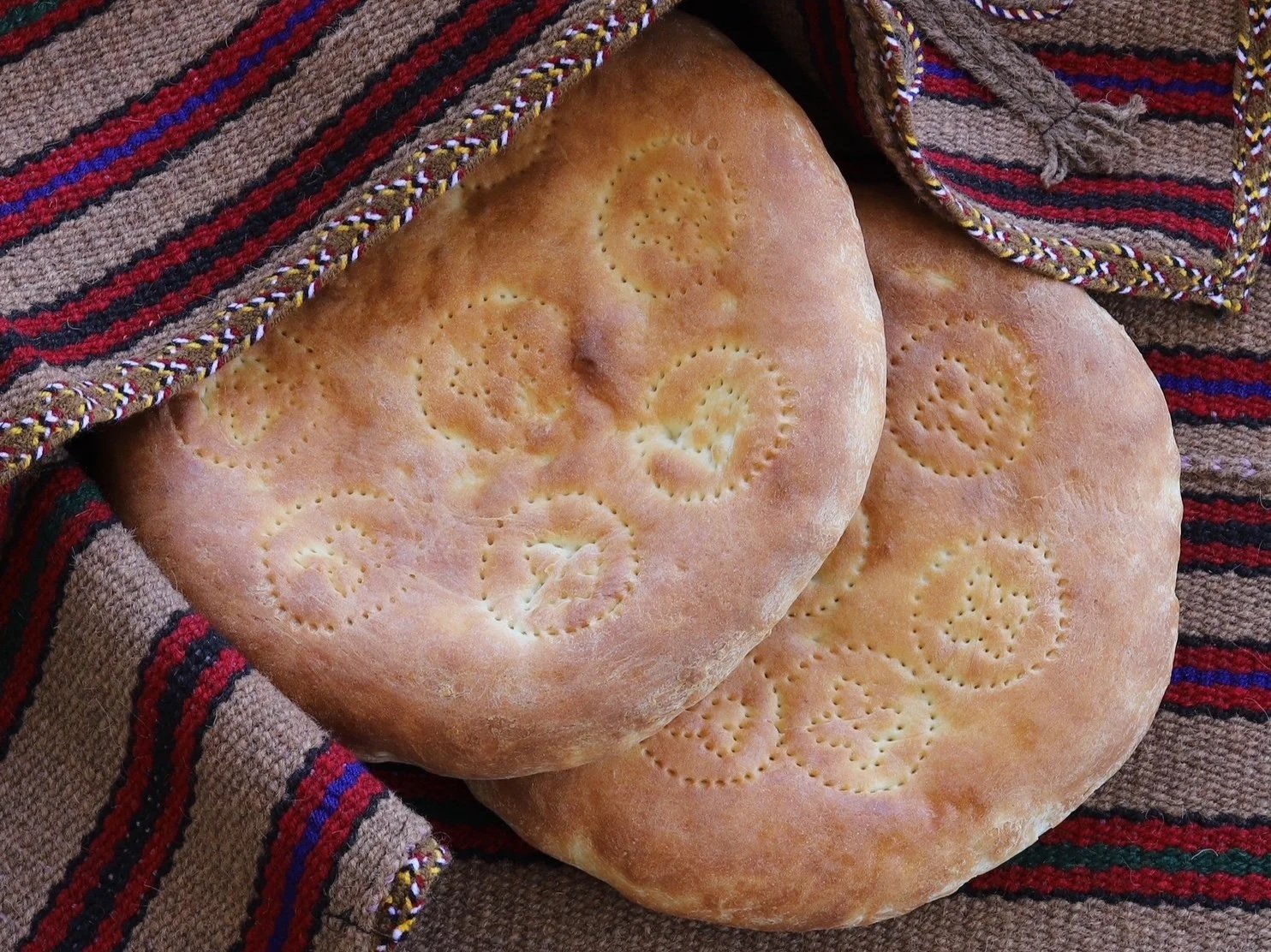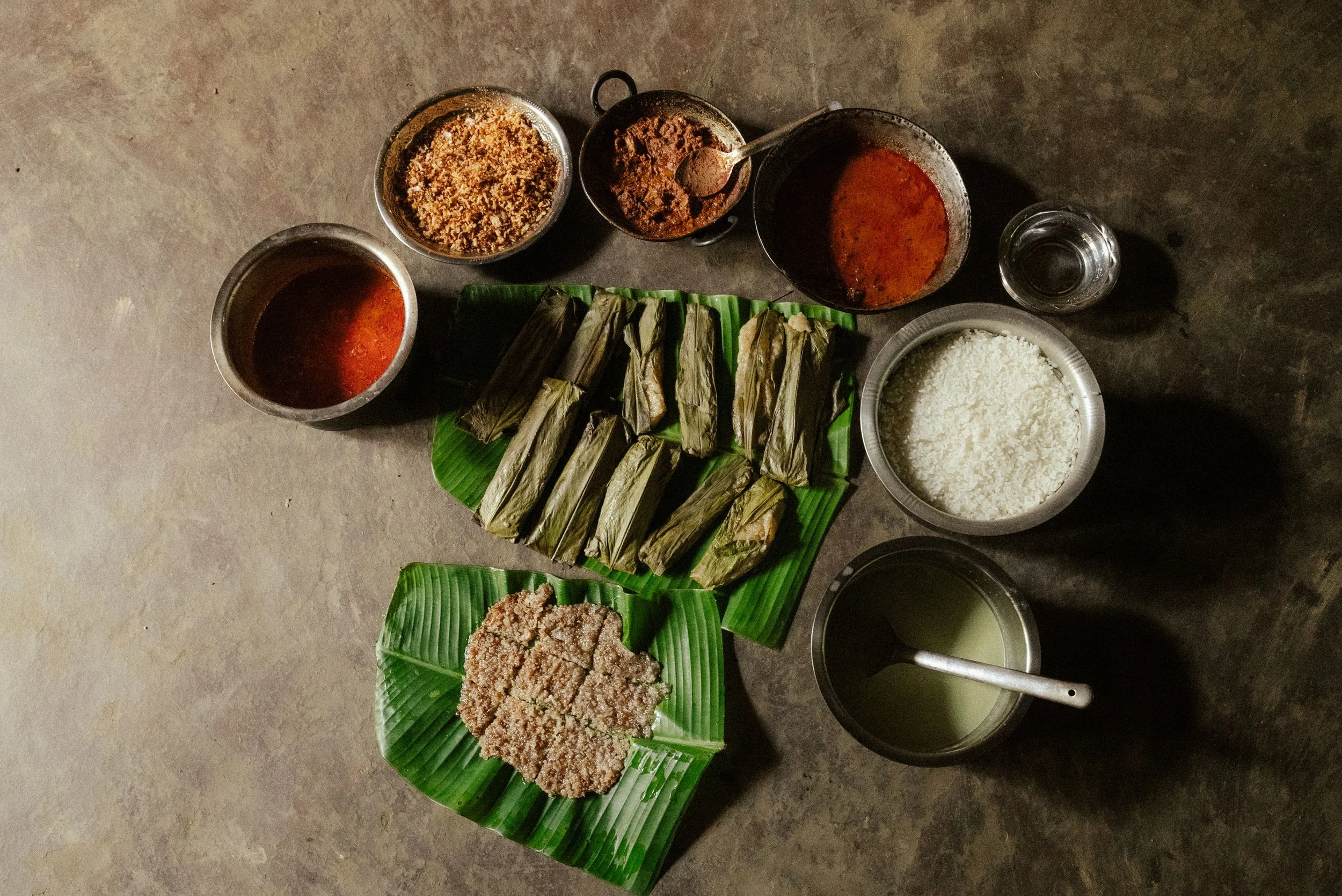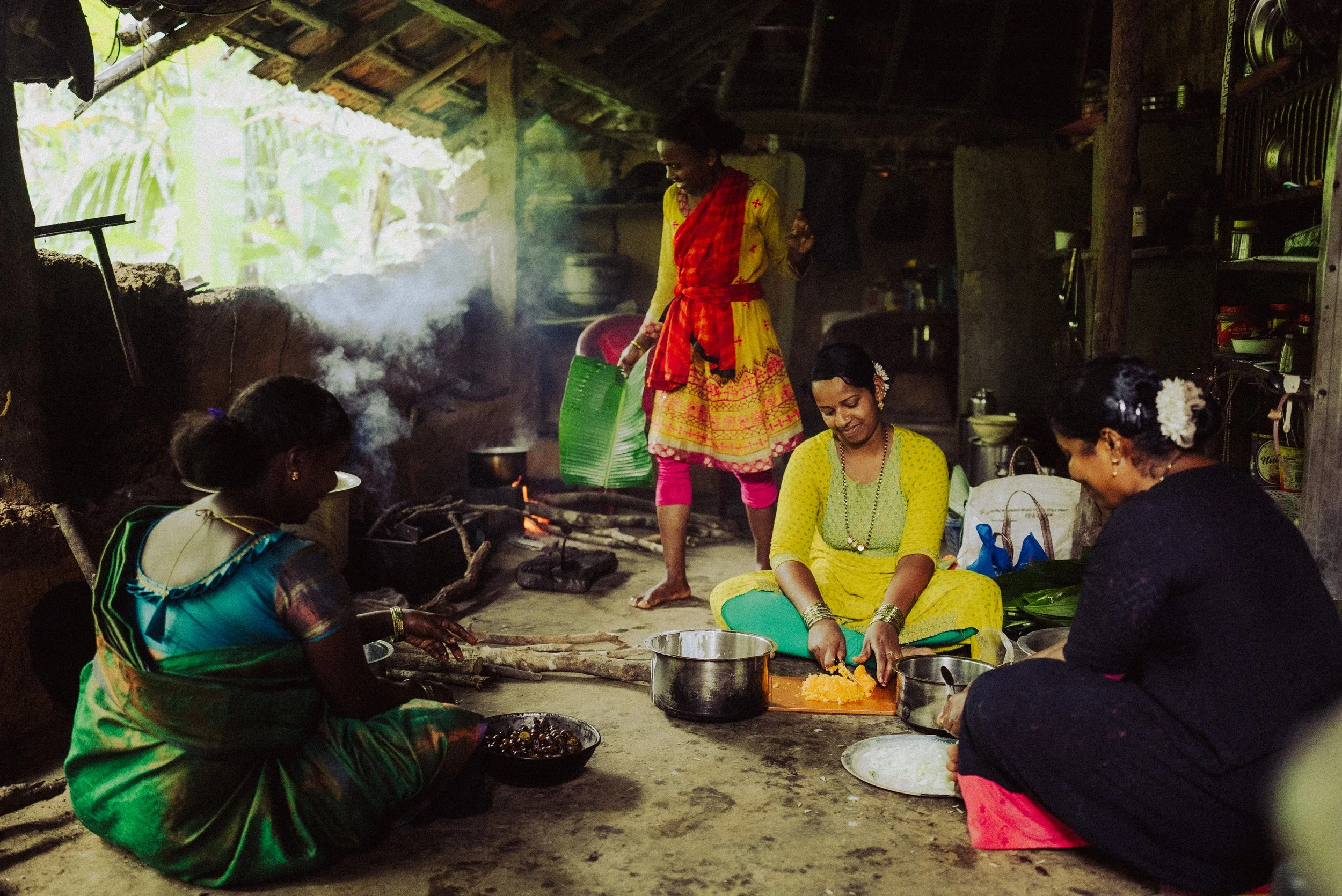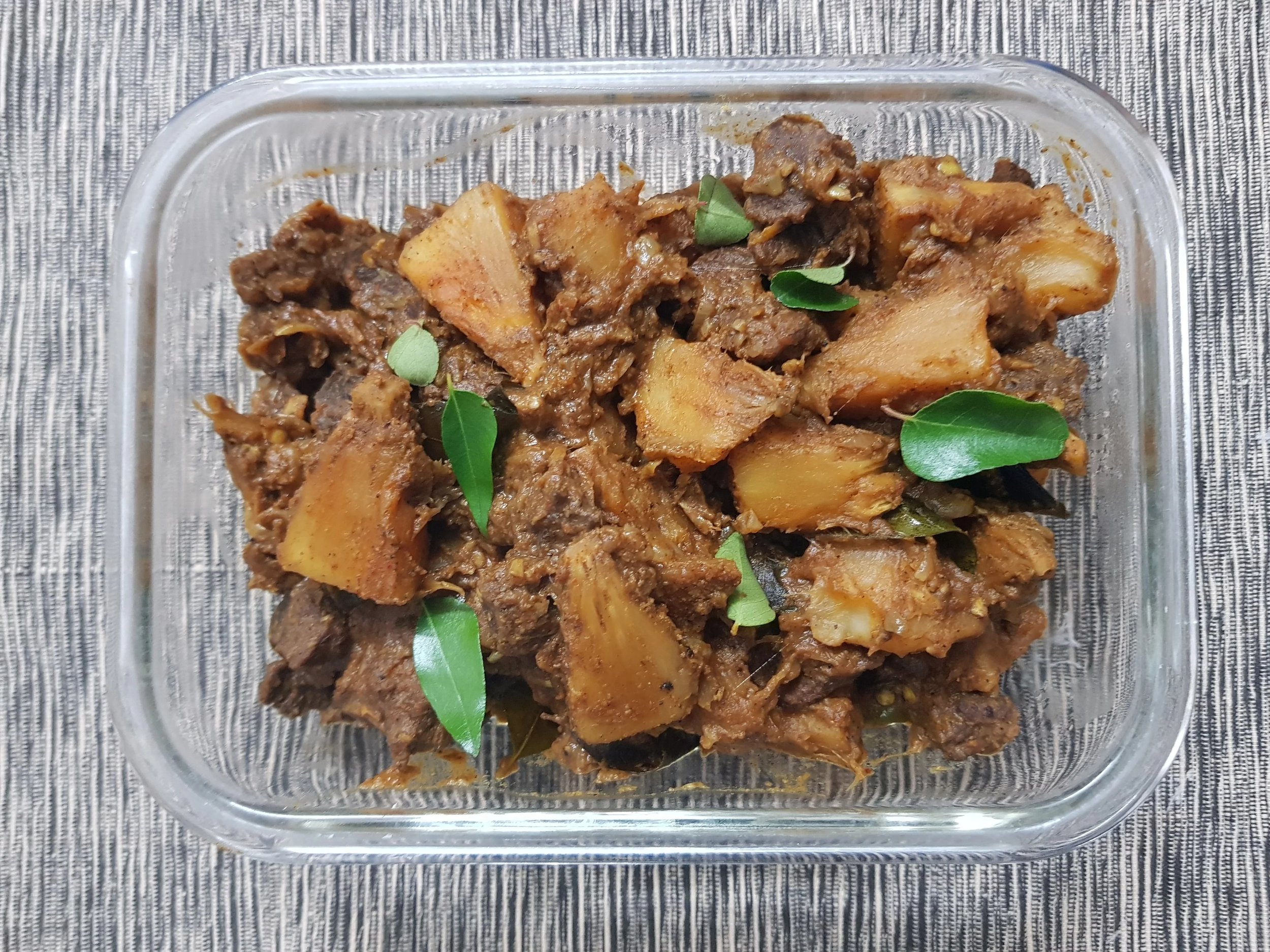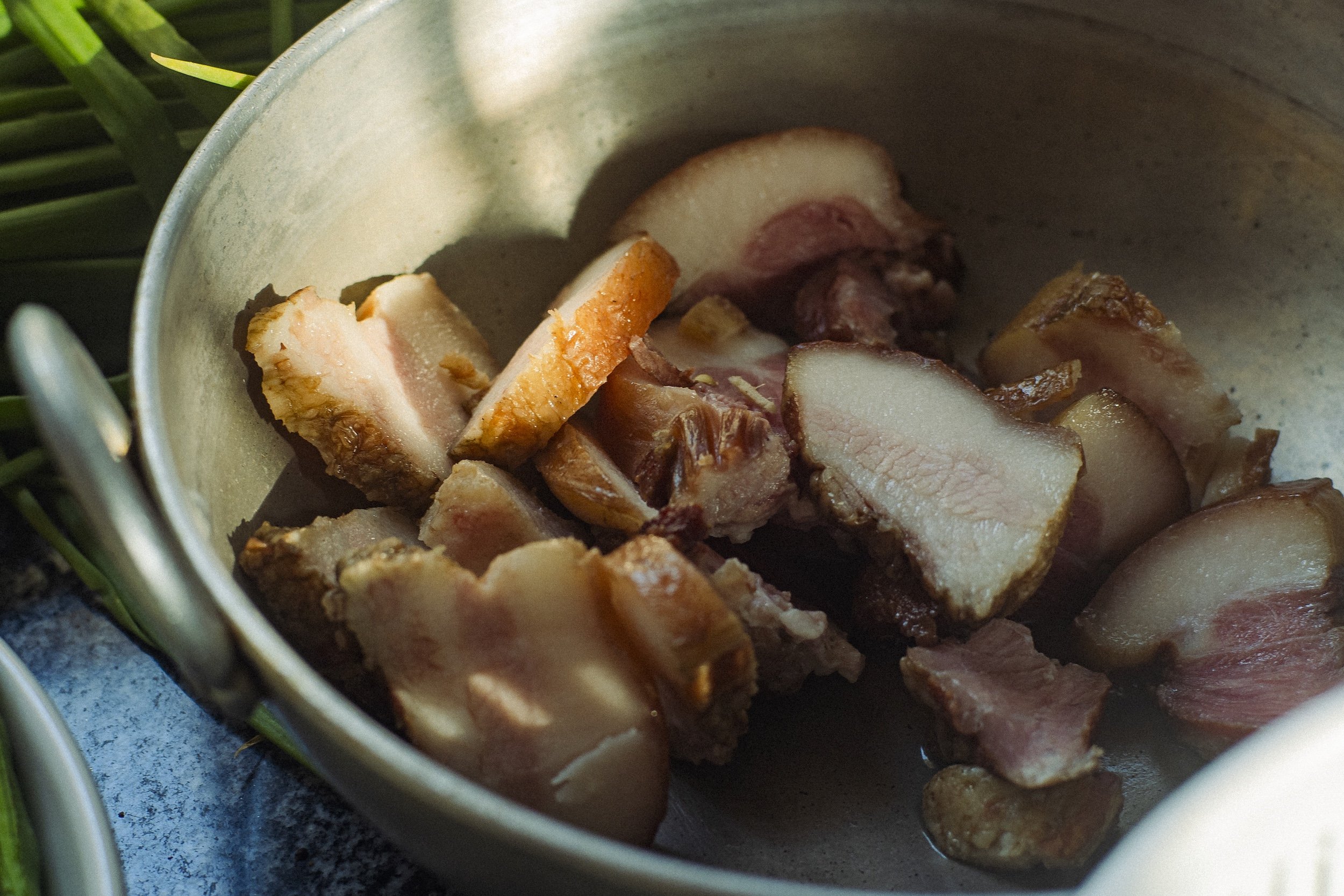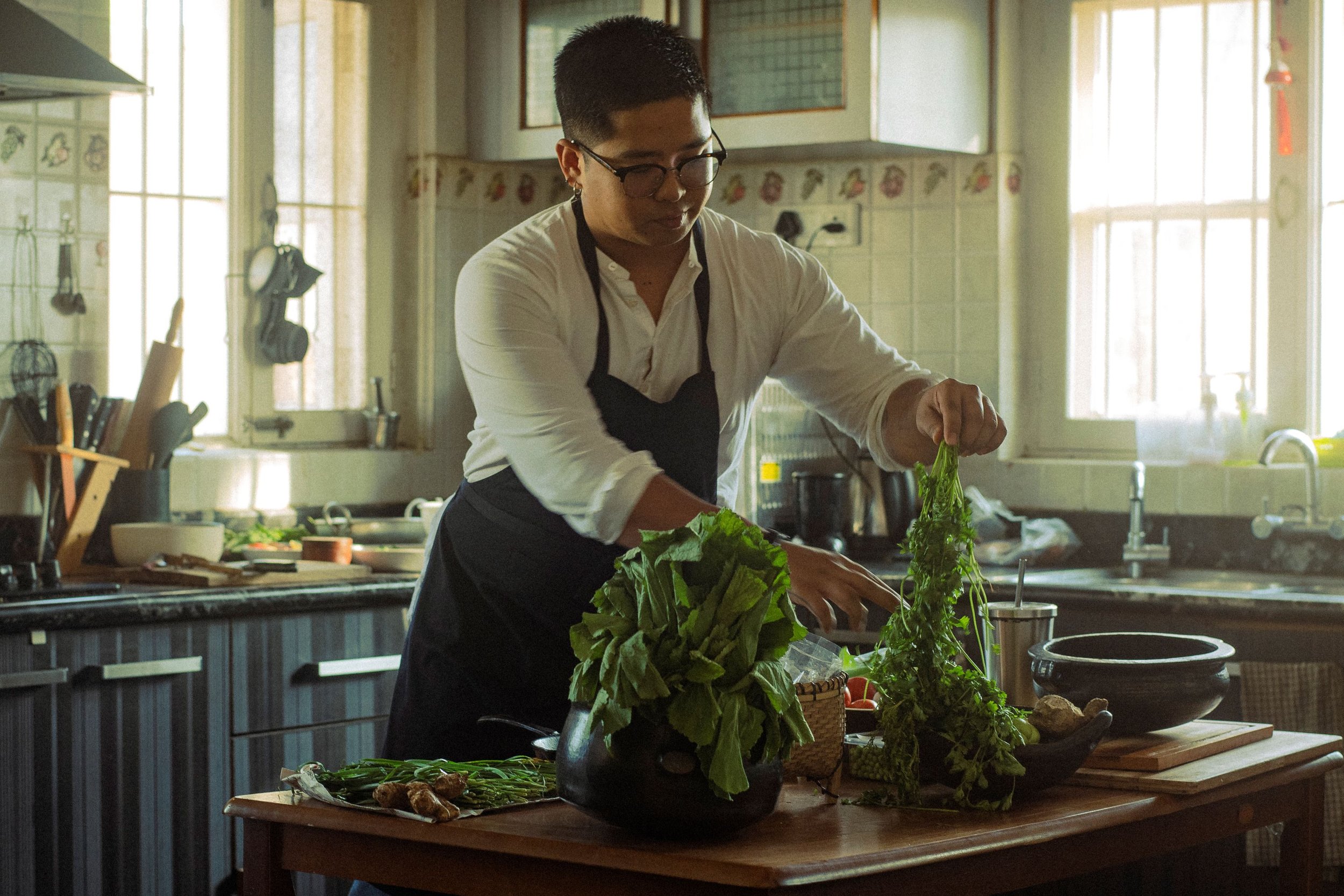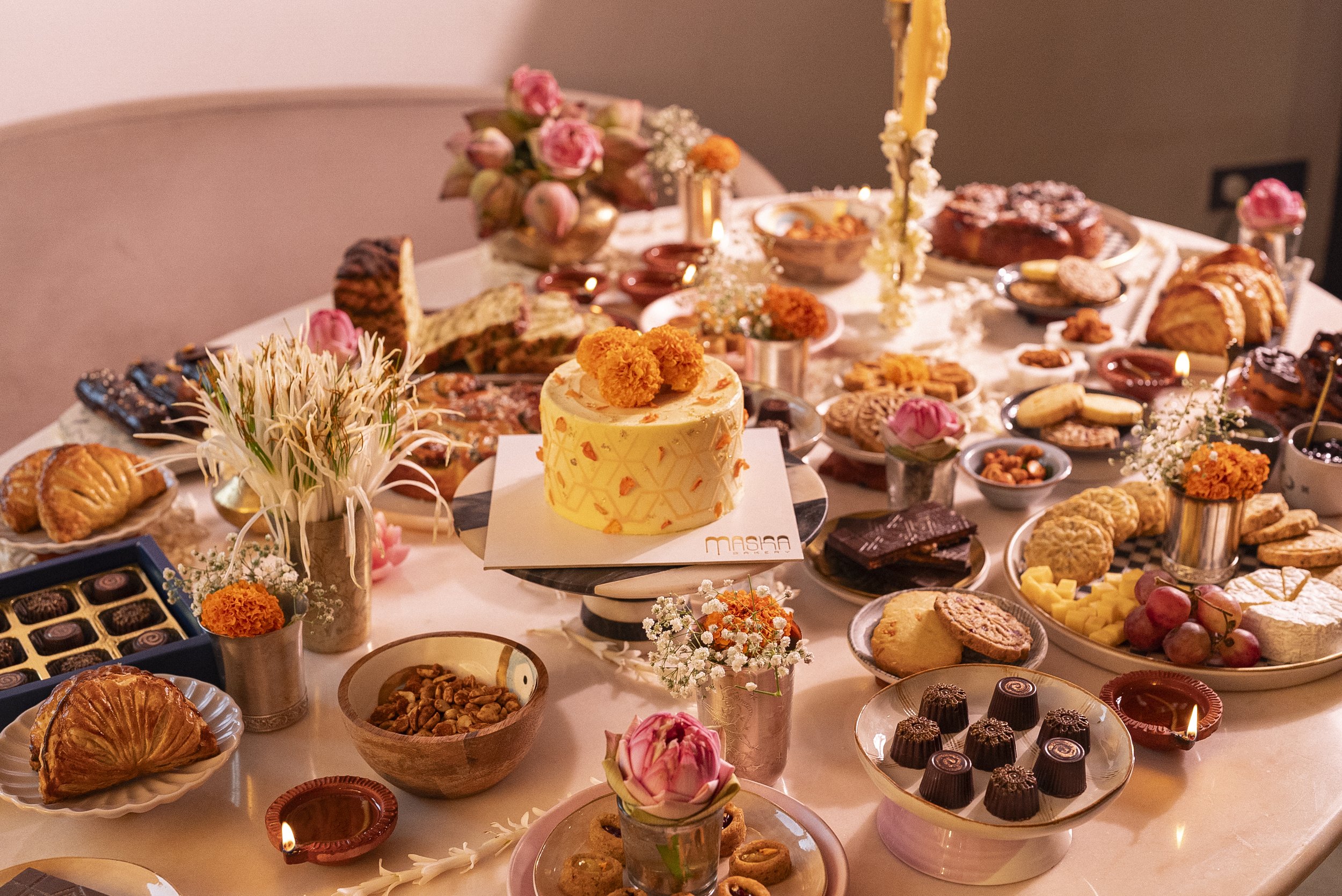Shorba: Mithalee Rawat's Ayurvedic Bone Broth

Mithalee Rawat, founder of Vancouver's Shorba Broth Bar, a bone broth company that has captured public imagination, talks Ayurveda, entrepreneurship and cultural rebranding with writer Aysha Tanya.
No two days are alike for Mithalee Rawat. Between stirring vats of broth that simmer for up to 48 hours, packaging and making deliveries, and working a part-time job to make ends meet, there is never a dull moment at Shorba Broth Bar.
Based out of Vancouver, Cananda, Mithalee is the founder of Shorba Broth Bar, a bone broth company that follows the principles of Ayurveda. The name for her business comes from the Hindi and Persian word for broth or soup, shorba. This golden elixir, the colour of liquid sunshine, is beloved in many cultures, including Indian and Chinese — animal bones are gently simmered for hours, until every ounce of flavour and nutrition is drawn out of them. “In Ayurveda, bone broth has been used to address issues of the joints and connective tissue because of its high collagen and micro nutrient content, so that is the starting point. According to other Eastern medicine practices like TCM (Traditional Chinese Medicine), it is also prescribed for treating gut health and digestion issues.”
Mithalee is an entrepreneur who has, for the most part, built her empire singlehandedly — a solopreneur, as she calls herself. Completely self-funded, Shorba Broth Bar was launched with money that Mithalee ‘squirrelled away’ because getting a loan without a guarantor was virtually impossible. She makes, packages and stores the broth in a rented commercial kitchen and delivers the broth on her bicycle – “I am getting a cargo trailer for my bike shortly and that will enable me to do bigger deliveries on my bike too which I am very excited about!” Occasionally she relies on friends and family, who help out in return for some of her spicy, delicious broth.
Photo credit: Erin Flegg
Mithalee has worked in a commercial kitchen since she was 19 years old. Her first job was as a line cook, and has since graduated from a Culinary Arts program in Edmonton, worked at the UK’s only organic-certified pub, Riverside at the Duke of Cambridge, and run various restaurant and café kitchens. It was at this point in her career that she started noticing bone broth gaining popularity. “About 4 years ago, while living in London, I began noticing the bone broth trend seeping into the health food industry after a sort-of bougie rebranding. I started noticing athletes and celebrities touting its benefits in the media. This encouraged me to start consuming it even more regularly. I began using my knowledge of Ayurveda to make custom broths for family and friends. I would make one with immune-boosting spices for sick ones, one with skin-beautifying ingredients for my skin-care obsessed self, one with digestion-supporting herbs for friends with IBS and so on. Literally within weeks of doing this I knew I wanted to give it a shot as a business.”
Since then, she has held a 3-month pop up, is a regular at local farmers’ markets and continues to do home deliveries to local customers. She hopes to take Shorba to grocery stores in the city and eventually, around the country. There are also plans to expand Shorba’s repertoire to include other Ayurvedic products, especially infused ghees and nootropic supplements.
One of the factors that sets Mithalee’s Broth Bar apart from most other brands in the market is that she doesn’t add onions and garlic to her broth. “In Ayurveda, onions and garlic are prescribed sparingly and are said to exacerbate gut and digestive issues, which is why I leave them out of my recipe.” There are two varieties of Shorba broths being sold currently, chicken and beef. The chicken broth is made from 50% chicken feet, which is high in collagen, and simmered for 24 hours, while the beef broth is simmered for 48 hours. Both contain medicinal spices for an added boost.
Bone broth has gained popularity the West over the last few years, and has been repackaged in convenient, portable forms. You can now buy them in containers at the grocery store, or in to-go cups to sip on as you walk to work in the morning. It owes a large part of its popularity to its branding as a miracle food. “Foods like bone broth have been used for millennia in so many cultures worldwide that it just feels comforting to consume. Also because of the high rates of physical issues these days, people are gravitating to using food as medicine and trying to reconnect with eating intuitively,” says Mithalee. However, catapulting its place into the higher echelons of the superfood hierarchy is the endorsement it has received from several celebrities, including the queen bee of the superfood movement, Gwyneth Paltrow, who called it winter’s miracle detox drink.
Over the years, we have seen several Indian foods being co-opted by the West. Turmeric is continuing to have its moment in the sun, thanks to the relentless campaigning of the yoga-practicing coconut-oil-pulling wellness influencers. It isn’t that ingredients that are part of other cultures shouldn’t be embraced, but when this is done with no credit to the traditions that it originates within, and is provided without context, that it becomes problematic. “When people think of health food, often they may even think of the raw ingredients from brown and black countries but only in its isolated form — for example, turmeric, goji berries, holy basil, maca, quinoa. We see these foods being promoted to be used in smoothies, lattes, ‘bowls’ but rarely if ever in the form they are traditionally consumed,” explains Mithalee.
Photo credit: Natalee Kittu Rawat
Just like turmeric, bone broth is presently being culturally rebranded and Mithalee is actively working to change this — “I hope by taking up space in an industry where people like me are underrepresented while the foods from our lands of origin are seen being commoditised a lot, my business can provide an option for consumers to support someone with cultural ties to a widely appropriated trend. Also, by making a space for myself I hope to provide visibility so that other people like me can feel like they can be a part of it as well. When I see immigrant, queer women of colour in business I feel deeply inspired and hopefully I can some day do the same.”
Mithalee also believes that education and awareness are powerful tools to fight this cultural appropriation of traditions, practices and ideas. “Food is an excellent medium to do this through because it is such a great common denominator and usually an easier entry into the conversation. Talking about it is key because the concept has to first permeate the mainstream collective consciousness for any change to happen. Whether they want to concede to it or not, if there is enough awareness about it shifts do start taking place.”
With running a business and plans for expansion underway, life can get stressful. Entrepreneurial burnout is an issue that is getting a lot of attention recently, and with good reason. Elon Musk famously said, “Running a start-up is like chewing glass and staring into the abyss. After a while, you stop staring, but the glass chewing never ends.” A research conducted in 2010 found that 49% of 242 entrepreneurs who were interviewed, reported anxiety, depression or ADHD. Like many entrepreneurs, Mithalee finds that striking a balance between work and self-care can be tricky. However, more recently, she has discovered the joy of working out with a personal trainer. Once-a-week sessions, she says, have had a positive impact on her mental health while providing instant gratification in a way that running a business doesn’t necessarily provide. “We have a wonderfully symbiotic trade,” she says — “bone broth for training sessions!”
Aysha Tanya is a co-founder of The Goya Journal.
ALSO ON THE GOYA JOURNAL


